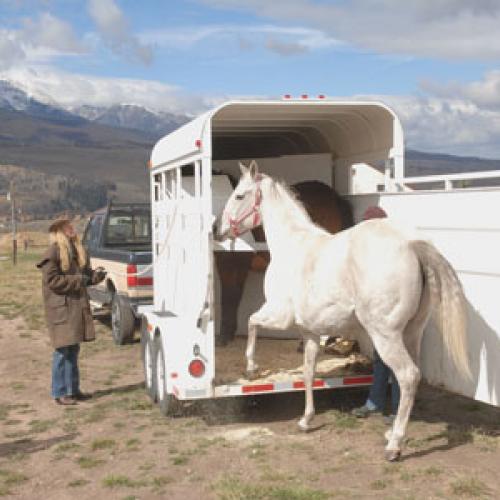There are lots of trainers – good trainers and bad trainers. This is a conversation that comes up a lot with equestrians of all disciplines and all skill levels. When is it time to move on from your current trainer?

It is that time of the year when we start hauling our horses to shows, trail rides, breeding farms, races and all kinds of other equine events. There are certain precautions and preparations that we need to make of our equipment and horse.
Truck and Trailer Preparation
An inspection of the horse trailer would include:
Plan the route ahead of time and identify the stopping spots and overnight facilities if you are on a long trip. It may be best to drive at night if the weather is extremely hot. Make sure you check the weather before starting out.
Preparation of the Horses for Travel
There are several things to consider when preparing the horse for a trailer ride particularly if this is their first long trip.
Certain travel documents are needed to travel and it is best to consult with your veterinarian for the requirements for entering certain states and countries. A Certificate of Veterinary Inspection (health certificate) and recent negative test for equine infectious anemia (Coggins test) are needed. Some states recognize a Equine Interstate Movement permit (passport) which extends your health papers for 6 to 12 months and they are good in all states that accept equine passports.
There are lots of trainers – good trainers and bad trainers. This is a conversation that comes up a lot with equestrians of all disciplines and all skill levels. When is it time to move on from your current trainer?
While you are working on New Year’s resolutions for yourself, consider making a few for your horse as well. Here are a few suggestions...
Maintaining a healthy weight is essential for horses as they age. Here are a few tips to help keep your horse fit and trim.
Would you know it if your horse was in pain? Even if you knew your horse was in pain, would you know what type of pain he or she was suffering from?